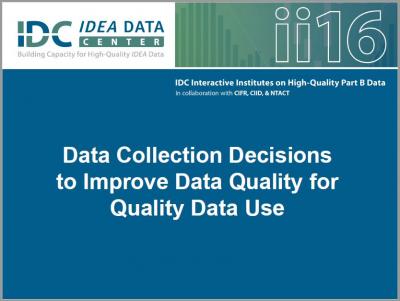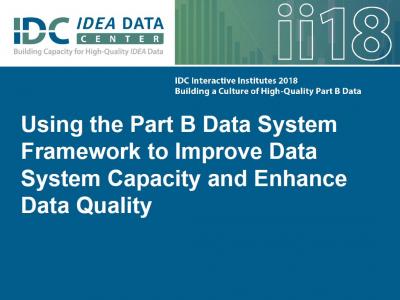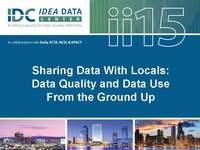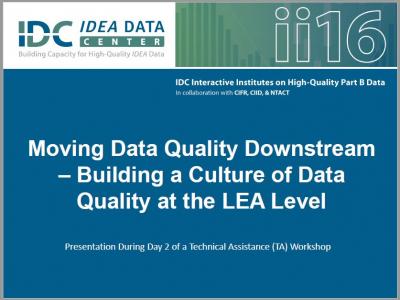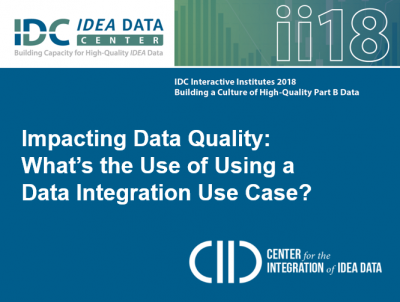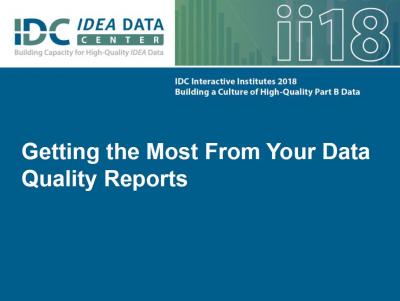Site Search
Results 1 - 7 of 25
Format: Presentations
Data Collection Decisions to Improve Data Quality for Quality Data UseThis presentation provided an overview of the challenges of data collection for IDEA Part B Indicator 14 and identified some successful efforts to overcome challenges such as representativeness and response rates. Additionally, presenters shared one state's effort to improve the quality of their student post-school outcome data to increase confidence in programmatic decisions that could be made from those data.
Format: Presentations
Digging Into the IDEA Data Quality Reports to Improve Data QualityOSEP has provided states with data quality reports, now what? This workshop explored ways states can use the IDEA Data Quality Review and Year to Year reports to improve data quality. Participants engaged in hands-on exercises to explore how the OSEP-provided reports may point to systemic issues related to internal state processes or communication. Participants explored next steps after identifying data quality issues, including applying best practices for writing data notes, incorporating lessons learned into internal processes or systems, and exploring opportunities for support or training for LEAs.
Format: Presentations
Using the Part B Data System Framework to Improve Data System Capacity and Enhance Data QualityThis session introduced the IDEA Data Center Part B Data System Framework as a tool to guide development of a coherent approach to improving data quality and data systems. The overall purpose of the framework and accompanying products is to allow states to assess progress toward valid collection, analysis, use, and reporting of Part B IDEA data. The presenter also presented and described a companion data system graphic.
Format: Presentations
Sharing Data With Locals: Data Quality and Data Use From the Ground UpThis topical burst suggests guidance and tips for creating data products for local staff and ways to promote a culture of high-quality data and data use at the local level.
Format: Presentations
Moving Data Quality Downstream - Building a Culture of Data Quality at the LEA LevelPresenters and participants discussed strategies that SEAs can use to help LEAs in collecting section 618 and other state-required data that is of high-quality. They explored IDC’s Knowledge Lab that lists various resources around different data collections. The Knowledge Lab contains many resources designed to help SEAs and LEAs gather, collect, validate, and report high-quality data. The discussion allowed for state input on how the state uses or can use these resources.
Format: Presentations
Impacting Data Quality: What’s the Use of Using a Data Integration Use Case?Better data quality means better allocation of resources for students with disabilities. Participants learned firsthand how SEAs are using innovative tools and practices to improve data quality practices and procedures and how states can get involved in this meaningful work. Participants actively engaged in documenting the current state of their SEA’s data management practices and built a use case for IDEA data integration. They were able to see how CIID’s Generate tool is preparing 10 states for better data quality, more efficient reporting, and more effective data use through an integrated data system.
Format: Presentations
Getting the Most From Your Data Quality ReportsThis session provided an overview of OSEP’s data quality review process, including understanding the process and rationale for the data quality review, how to read the data quality reports, and what triggers the request for data notes. The presenter also talked about how OSEP uses the data notes and what states should consider when developing a data note in response to the review.

